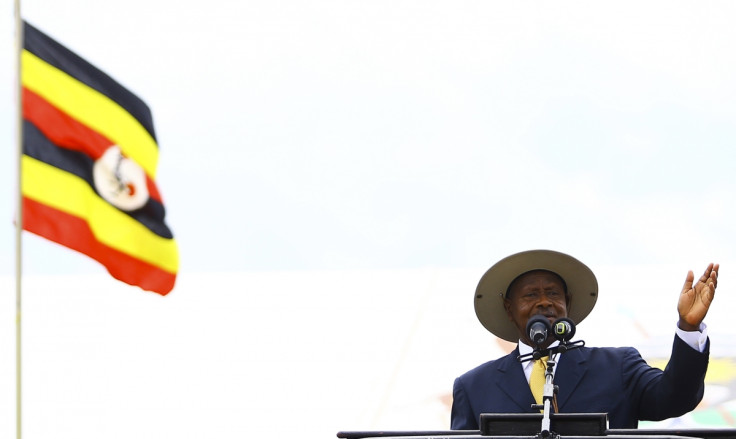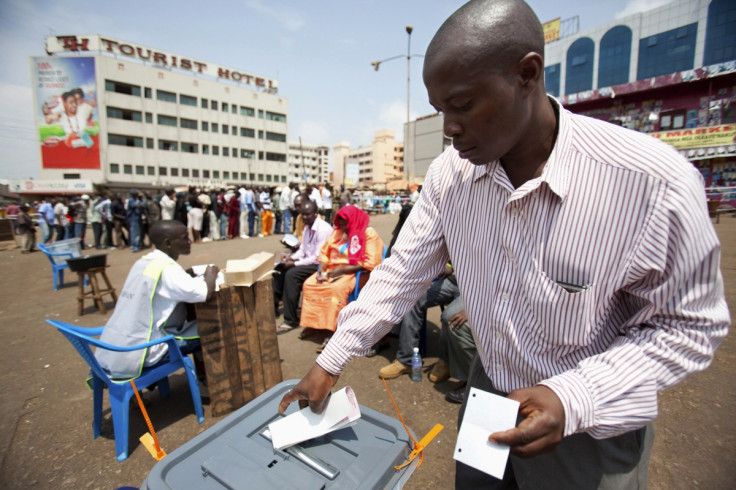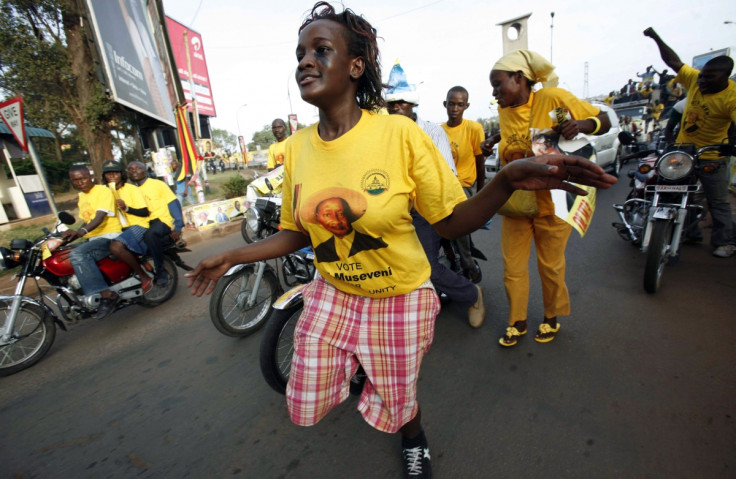Uganda elections 2016: Can President Yoweri Museveni win a fifth term in office?

Political tensions are running high as 15 million Ugandans prepare to head to national elections on 18 February, in which President Yoweri Museveni will be contesting his fifth term in office.
Nine candidates are competing for the presidency in what is essentially seen as a three-horse race, which outcome will define Uganda's future (See more: Who are the main candidates running for president?).
Back in the summer, Ugandans thought the upcoming poll could be an exciting election, in particular after John Patrick Amama Mbabazi left the ruling National Resistance Movement (NRM) party to join the opposition, clearing the way for a possible joint-candidacy between him and long-time presidential contender, Dr Kizza Besigye.

An opposition win?
One possible outcome of the election is the opposition winning by a small margin, with Mbabazi coming out victorious on the back of a general feeling of dissatisfaction at Besigye's radicalism, and Museveni's decades-long reign.
"There was the feeling that Mbabazi could shave off some NRM voters and that him joining Besigye could re-invigorate the traditional opposition strongholds, and encourage a feeling the opposition could win, and snowball into a second round, or even a straightforward opposition win," Gabrielle Lynch, associate professor of comparative politics at the University of Warwick, UK, told IBTimes UK.
"But this hasn't happened – Mbabazi and Besigye failed to agree on a joint-candidacy and have gone forward on separate tickets. This is not just problematic because it means (oppoosition) votes are divided, but it makes both of them look as if they are only in it for themselves, and their failure to unite has fed into a general sense of scepticism about politicians."
Besigye's political popularity, for instance, is tainted by the fact that he has already lost three elections.
Recent reports show that Mbabazi has garnered popularity amongst some of the urban middle-class voters, but local surveys also reveal he has not managed to mobilise much of the support base outside of those groups, despite the fact many turn up to his rallies. "This, however, does not look as if it is translating into possible voters at the moment," Lynch, who specialises in East African politics, said.
An opposition stronghold in the past, Uganda's northern region has also witnessed changes, as more voters have become cynic about politics and politicians, Lynch highlighted.
"There are a few people wondering why Besigye would be able to win this time round when he hasn't been able to win in previous elections. Many were asking why they should vote for the opposition when they might not come out victorious, either because they don't win or Museveni makes sure they don't win."
A fifth term for Museveni?

Current reports indeed seem to point to the fact Museveni is holding on to the grabs he made in the North in the 2011 election, which might, if anything, increase his margin in that area – and commentators now believe in a Museveni-led NRM victory.
While MPs at the time said they expected a lot more than what they heard from the president in his June 2015 state-of-the-nation speech, a clear electoral victory could mean more radical policies and programmes may be easier to introduce.
These may include the list of priorities Museveni outlined in his speech – security, money laundering, road construction and remedying the rampant corruption in the road sector, electricity generation, and simplifying the cost of borrowing.
"There is just over a month before the election, and the situation can change, but as it stands at the moment, it does look as if Museveni is in the lead, and that he is likely to win in the first round," Lynch explained. However, she added, this could change in the final month of the campaign.
Meanwhile, commentators are questioning whether the opposition will reject the results and call for their supporters to protest against Museveni's potential re-election, as was the case in 2011 when the president won a fourth term in office by a huge margin.
© Copyright IBTimes 2025. All rights reserved.






















